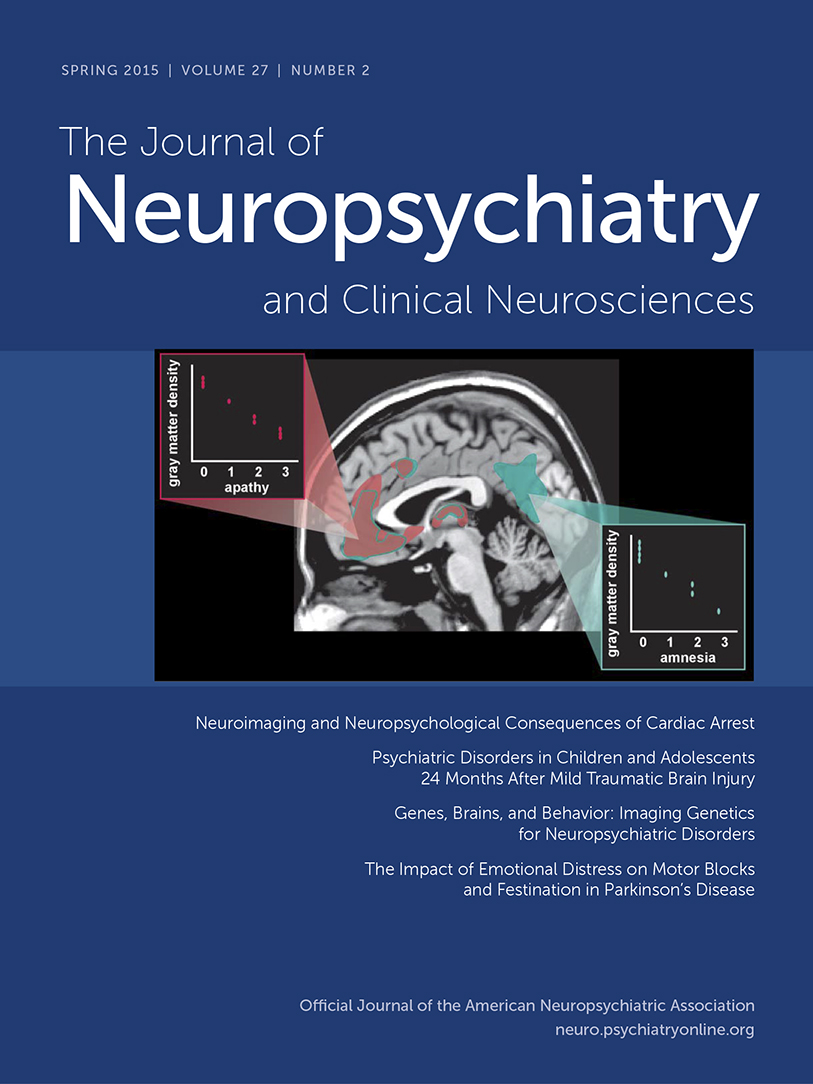The Impact of Emotional Distress on Motor Blocks and Festination in Parkinson’s Disease
Abstract
Recent studies suggest that depression and anxiety in patients with Parkinson’s disease may predispose them to freezing. Although festination is also frequent, the association with emotional disorders has not been examined. The aim of the authors was to clarify the association between freezing and festination with anxiety, depressive disorders, and emotional distress. The authors examined a consecutive series of 95 patients with Parkinson’s disease using comprehensive psychiatric assessments and a new instrument specifically designed to assess the severity of freezing, festination, and emotional distress (Motor Blocks and Festination Scale). All patients were assessed with the Motor Blocks and Festination Scale, the Mini International Neuropsychiatric Interview, and scales to measure the severity of mood and anxiety disorders. A linear regression analysis showed that both motor blocks and festination were significantly associated with emotional distress and deficits on activities of daily living. Conversely, there was no significant association between motor blocks or festination and generalized anxiety disorder, panic disorder, agoraphobia, social phobia, or depression. Motor blocks and festination are significantly associated with emotional distress, but no significant associations were found with anxiety or affective disorders.



